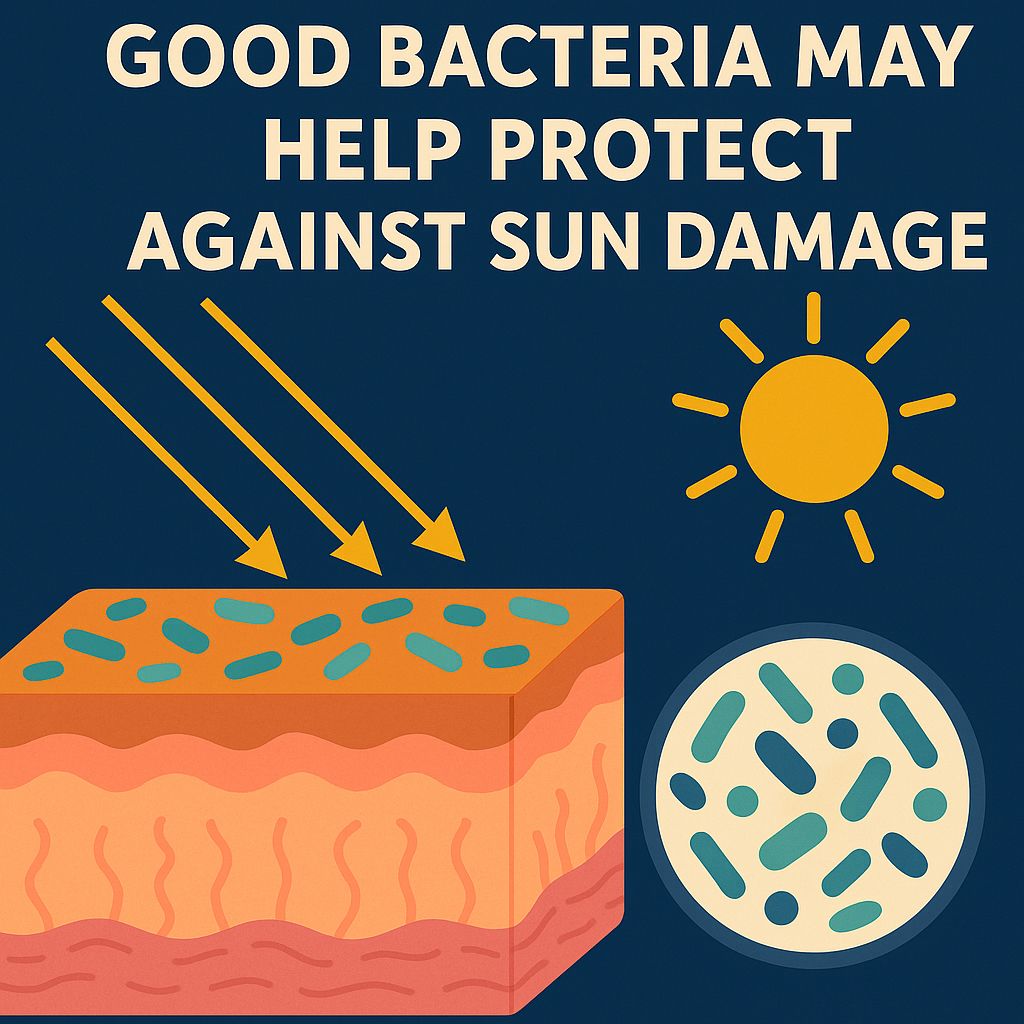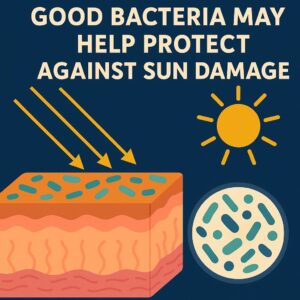
Good Bacteria on Our Skin May Help Protect Us from Sun Damage


A new study published in the Journal of Investigative Dermatology shows that some of the bacteria naturally living on our skin can help protect us from the harmful effects of sunlight.
- What Did Scientists Discover?
When our skin is exposed to UVB rays from the sun, it produces a molecule called cis-urocanic acid, which can suppress our skin’s immune response. This means it can weaken our skin’s ability to defend itself. But researchers found that certain skin bacteria—those that produce an enzyme called urocanase—can break down this molecule. In doing so, they reduce its negative effects and help the skin maintain a healthier immune balance.
- How Did They Test This?
The scientists used lab-grown bacteria, immune tests, and special mice to confirm that:
• These “good” bacteria really do change the way skin responds to UV.
• Removing or changing these microbes affects how well the skin defends itself.
- What Experts Say
• Dr. VijayKumar Patra, lead author of the study, said: “We were amazed to see that bacteria on the skin can help manage how sunlight affects our immune system.”
• Dr. Peter Wolf, another senior researcher, added: “This could lead to new types of sun protection—ones that support healthy skin bacteria instead of just blocking sunlight.”
- Why It Matters
This discovery could lead to:
– Smarter sunscreens that support or include beneficial bacteria.
– Better skin treatments for diseases like eczema or psoriasis that use UV light therapy.
– New ways to protect against skin cancer by boosting the skin’s natural defenses.
- Reference
